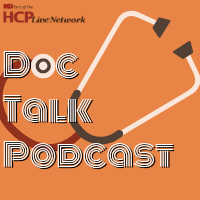Video
Ineffectual Treatment Solutions of Antiquated Law System
Peter Salgo, MD: As I understand, the legal definition of insanity is the inability to distinguish right from wrong. Correct? If true, you cannot be convicted by virtue of insanity. Does that fit here?
Judge Steven Leifman: No, because some of these individuals may be competent to stand trial even though that isn’t the appropriate course. What ends up happening is we spend billions of dollars trying to restore their competency. They end up getting credit time served because the doctor is invariably right, and they’re not considered in serious offenses. We had around 160 murders in Dade, Miami, last year, and 2 or 3 were committed by people with serious mental illness, which is a lot. The real issue is our antiquated law system. It doesn’t necessarily reflect modern science, research, and medicine. I don’t think our involuntary hospitalization or competency laws are appropriate or effective. We need a fresh perspective on the situation.
Mauricio Tohen, MD, DPH, MBA: In some states, you have not guilty for reason of insanity, while in others, you can have mentally ill and guilty. It depends on the state, right?
Judge Steven Leifman: Yes, but that’s not really the issue. Less than one-tenth of 1% of people who have insanity issues are found not guilty by reason of insanity—that’s almost irrelevant to our system. The real problem is we’re recycling people and then trying to restore them, but not treat them, instead of getting them proper treatment, a diversion program, or redirection, to get them back into the community appropriately.
Peter Salgo, MD: The system, at its core, is antiquated, and these anachronistic definitions of what constitutes mental illness and competence to stand trial are insufficient and inaccurate—this is what you’re saying, correct?
Judge Steven Leifman: Yes. And it’s antiquated as to how we should treat people to keep them healthy.
Peter Salgo, MD: The whole point of serious mental illness—and we’ll look at schizophrenia—is getting treatment. What are the challenges to medication adherence and getting people treated once they’re incarcerated?
Nneka Jones Tapia, Psy.D: We talk about the system, which is broken at the core. Namely, prisons and jails are not set up for health care delivery. That’s the issue.
Judge Steven Leifman: We’re the de facto mental health system; they’re not.
Nneka Jones Tapia, Psy.D: And we can’t say no, right?
Judge Steven Leifman: Right. And there’s no gate. You come in; that’s the irony. The only entitlement to mental health treatment in the United States is if you’re arrested.
Nneka Jones Tapia, Psy.D: Yes.
Peter Salgo, MD: That’s it.
Judge Steven Leifman: That’s it. You don’t have entitlement to care if you’re out in the community.
Peter Salgo, MD: You mentioned involuntary hospitalization. Wasn’t there a Supreme Court ruling that said that unless you’re a danger to yourself or others, they cannot forcibly put you in an institution?
Judge Steven Leifman: Nor should they. But there’s an in-between: The laws have broadened, and the courts have upheld. Self-neglect and a need for treatment are starting to see the light of day because the science is changing, and the courts are beginning to reflect this change.
Peter Salgo, MD: But there’s been concern regarding the ineffectiveness of treatment. An argument being used by attorneys is to, instead of wasting money on treatments, leave the mentally ill on the street.
Judge Steven Leifman: Back in the day, I imagine when the choice was between horrible state hospitals that were torturous and going back on the street, the latter was the better option. But that isn’t where we’re at today: We have good treatments, and they’re very effective. We just don’t give access to those treatments for this population.
Nneka Jones Tapia, Psy.D: We also need to move the dollars that are going toward treating individuals in the criminal justice institutions to treating them in the community. You asked the question regarding the difficulties of treating people with schizophrenia in correctional institutions. Just to clarify: There is difficulty making sure the right person is getting the right medication at the right time.
Peter Salgo, MD: There’s no time-out?
Nneka Jones Tapia, Psy.D: There’s no time-out. Many medications, for example, need to be taken with meals. At the correctional institutions, we serve breakfast, lunch, and dinner at certain times of the day—that doesn’t always coincide with optimum medication delivery. So even just the medication distribution is problematic. In Cook County, we had to get the highest level of authority at the jails—myself—to be notified when an inmate did not show up for an appointment because there are so many obstacles of getting inmates in front of their doctors in correctional institutions.
Transcript edited for clarity.





